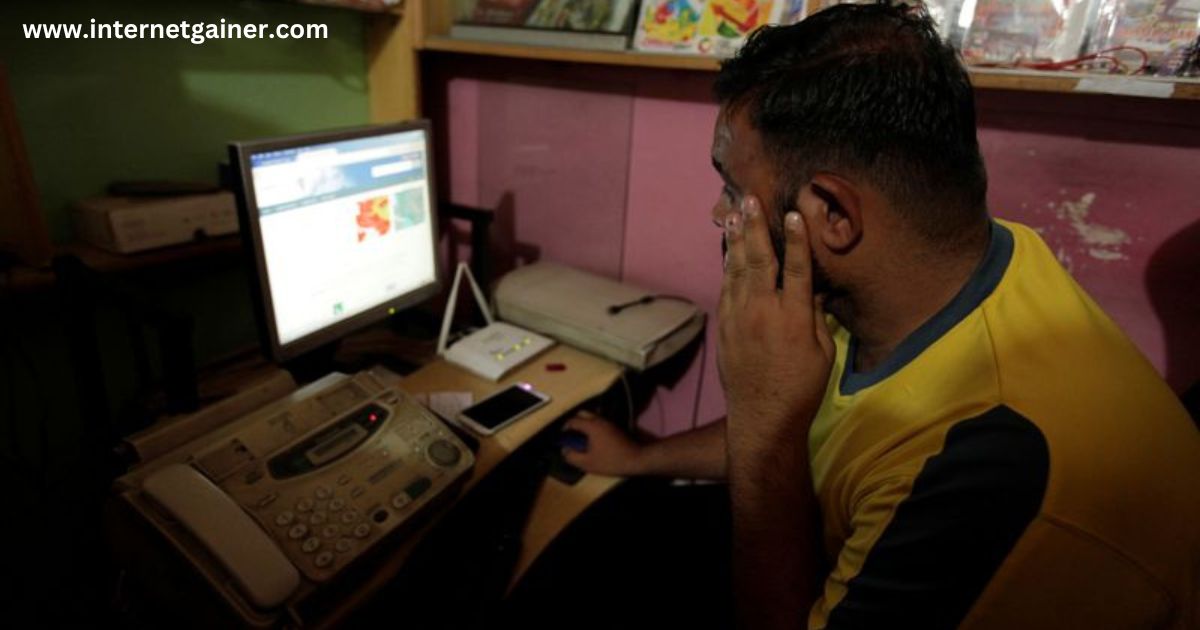The topic of internet restrictions in Pakistan has been a matter of increasing concern in recent years. While governments may impose internet curbs for various reasons, such as national security, political stability, or public safety, the long-term consequences of these actions can be far-reaching.
In this blog, we explore why internet curbs could cost Pakistan dearly—socially, economically, and technologically—and what this means for its future.
Why are Internet Curbs Imposed in Pakistan?
Internet restrictions in Pakistan have often been implemented in response to national security concerns, political unrest, or the desire to curb the spread of misinformation.
During times of political instability, protests, or security operations, the government has blocked or throttled internet access to prevent the organization of dissent, control the narrative, or stop the spread of content deemed threatening to public order.
While such measures may seem justified in the short term, the long-term effects on the country’s economy, education system, and overall digital growth are significant.
How Do Internet Curbs Impact Pakistan’s Economy?
1. Disruption of Digital Economy
Pakistan has a burgeoning digital economy, with e-commerce, fintech, and online services seeing rapid growth. Internet curbs disrupt the ability of businesses to operate effectively, leading to significant losses.
For example, during internet shutdowns, e-commerce platforms struggle to process transactions, while digital payment systems face disruptions. This is especially harmful for small businesses that depend on online sales and services.
2. Impact on Foreign Investment
In a globalized world, foreign investors are increasingly looking for countries with robust digital infrastructure. Internet curbs create an impression of instability, deterring potential investors.
Companies considering setting up regional offices or launching digital services in Pakistan may look to other nations with more reliable internet connectivity, leading to lost opportunities for economic growth.
3. Hindering Innovation and Startups
The tech startup ecosystem in Pakistan is in its early stages but showing great potential. Internet restrictions stifle creativity and innovation. Access to online resources, global networks, and collaborative platforms is essential for the growth of the tech industry.
A lack of free-flowing information, delayed communication, and interrupted access to international markets can drastically slow down progress for startups.
How Does the Lack of Internet Affect Education and Social Services?
1. Challenges for Students and Online Learning
The COVID-19 pandemic highlighted the importance of digital learning platforms. With many students now relying on online education, internet curbs directly impact their ability to attend classes, complete assignments, and access educational materials.
In rural areas, where internet access is already limited, these curbs further deepen the digital divide, leaving students behind in an increasingly competitive global job market.
2. Healthcare and Telemedicine
Pakistan’s healthcare system has also begun embracing telemedicine and online health services. Internet curbs limit the ability of doctors to consult with patients remotely, especially in underserved regions.
This not only hampers healthcare accessibility but also affects the efficiency of emergency services and public health management.
3. Loss of Social Connectivity
Beyond business and education, the Internet is a vital tool for social interaction, particularly in a country as diverse as Pakistan.
Social media platforms serve as a channel for people to connect, share ideas, and engage in civic discourse. Censorship and internet shutdowns can isolate communities, particularly marginalized groups, and hinder free expression.
What Are the Long-Term Consequences of Internet Restrictions?
1. Stunted Digital Literacy
Access to the internet is essential for building digital literacy, which is crucial for future job markets. With internet restrictions, Pakistan risks creating a generation of young people who are technologically disadvantaged, putting the country at a severe disadvantage in an increasingly digital world.
2. Brain Drain
Highly skilled professionals in fields like IT, tech, and research may find themselves frustrated by the limited scope of their work in Pakistan due to internet curbs.
In search of better opportunities, they may leave the country, contributing to a “brain drain.” This loss of talent further impedes Pakistan’s ability to develop its digital infrastructure and compete globally.
3. Damage to International Reputation
Repeated internet shutdowns or curbs can damage a country’s reputation on the international stage. It portrays an image of censorship and lack of freedom of expression.
For international organizations, media outlets, and human rights groups, this can result in negative publicity, which may affect diplomatic relations and foreign partnerships.
FAQs: What You Should Know About Internet Curbs in Pakistan
1. Why does Pakistan impose internet restrictions?
Internet restrictions in Pakistan are typically imposed for national security reasons, to prevent the spread of harmful content, or during periods of political unrest or violence. The government may also block certain websites or social media platforms to control public sentiment.
2. How do internet curbs affect businesses in Pakistan?
Internet curbs disrupt e-commerce, digital payments, and online customer services. Businesses that depend on digital platforms for sales, marketing, or communications suffer financially due to halted operations, lost revenues, and reduced customer engagement.
3. Can internet curbs be avoided in the future?
It is challenging to completely avoid internet curbs, especially in politically sensitive situations. However, improving transparency, developing alternative ways to manage public unrest, and adopting digital infrastructure that can withstand partial restrictions could help mitigate the impact.
4. What are the alternatives to internet curbs for maintaining national security?
Governments can explore options such as targeted content moderation, cyber security measures, or limiting access to specific harmful websites without implementing widespread internet shutdowns. Digital surveillance technologies and collaboration with internet service providers could also help manage security risks without compromising overall internet access.
5. How can Pakistan improve its internet infrastructure to avoid curbs?
To avoid the need for internet curbs, Pakistan needs to invest in robust digital infrastructure, increase internet accessibility across rural areas, and implement strong cybersecurity policies. Additionally, improving the relationship between tech companies, the government, and civil society can lead to more balanced decisions regarding Internet governance.
Conclusion: A Cost Too High for Pakistan to Bear
While internet curbs may seem like a quick fix for addressing security or political concerns, the long-term costs are high. Disruptions to the economy, education system, healthcare services, and social fabric can have lasting effects.
For Pakistan to thrive in the 21st century, it must prioritize digital access, invest in reliable infrastructure, and find more effective ways to manage national security without compromising the country’s growth potential. Without these changes, the nation risks stalling its progress and falling behind in the global digital race.
Key Takeaways:
- Economic Impact: Internet curbs disrupt businesses, hinder foreign investment, and stifle innovation.
- Education and Social Services: Internet restrictions negatively affect online learning, healthcare access, and social connectivity.
- Long-Term Risks: Internet curbs contribute to digital illiteracy, brain drain, and damage Pakistan’s international reputation.
- The Need for Balance: Finding alternatives to blanket internet shutdowns is crucial for Pakistan’s future digital growth.
Pakistan must learn to balance security concerns with the need for open, unrestricted internet access to avoid paying a hefty price in the future. For more 5g Internet information check the internetgainer.



